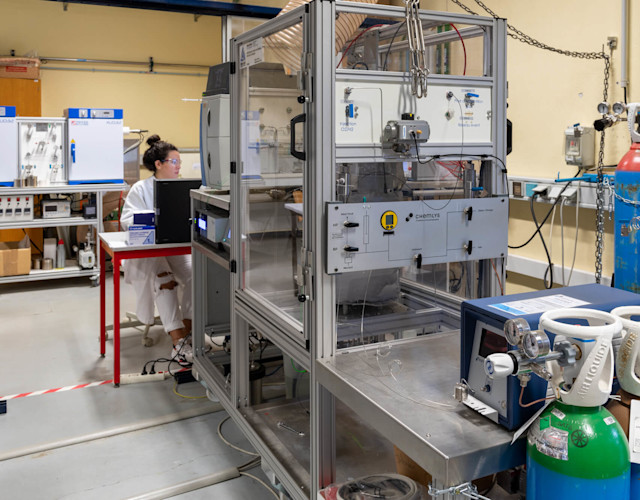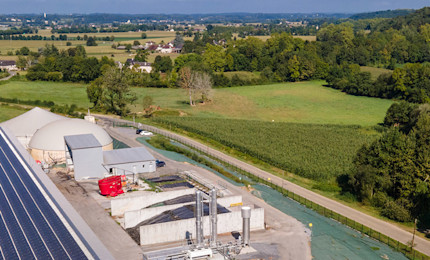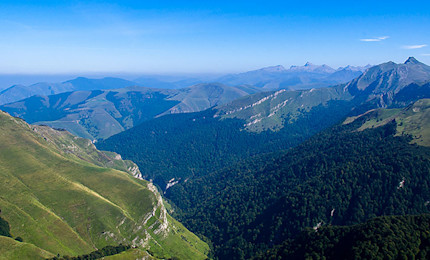Gas emergency 0 800 028 800

Teréga commits itself to energy transition for the good of society
As a crucial regional, national and European actor in the energy market, Teréga has, for more than 75 years, been bringing its expertise to bear on the development and operation of gas transport and storage infrastructures. Committed to the development of our sector, we are invested in the safety, maintenance and enhancement of our infrastructures, to provide everyone with an ever safer, ever more efficient, and ever more environmentally integrated network.
A central link in the chain serving energy producers and consumers
Located at the crossroads of the main European gas flows, our infrastructures occupy a strategic position, serving the Europe with energy. Our primary focus is the performance and security of supplies to individuals and businesses alike. Committed to “greening” gas infrastructures, we are actively involved in the work being led in particular by the Energy Regulation Commission (CRE), the Directorate General for Energy and Climate (DGEC), the French National Assembly, the French Senate and professional associations, as well as their European counterparts. We, alongside other French infrastructure operators, submitted a report to the government in 2019, confirming the possibility of integrating a significant volume of hydrogen into the gas mix by 2050, with limited infrastructure adaptation costs. The assessment that was performed confirmed the role to be played by gas grids, storage sites and methane terminals in the expansion of hydrogen in France and achieving carbon-neutral status by 2050.
Teréga is involved in current work on new gas sectors
Teréga is a member of the Association Française du Gaz (AFG, the French gas association). Founded in 1874, the AFG provides representation for the whole gas industry before French and European public authorities. In particular, it helps with the work to establish regulations, standards and certifications linked to gas. We participate in it through committees, including those working on infrastructures, renewable gases, market operating rules, prospects and fiscal arrangements, LNG and intermodality, energy efficiency and the environment. As an actor committed to the regions, Teréga is also linked to consultation work among regional energy actors: Dominique Mockly, our Chairman and General Manager, is also the Chairman of AFG in the Far South-West of France.
Since April 2019, we have been involved in the discussions of the Comité Stratégique de Filière (CSF), a strategic committee working on the “new energy systems industries”. The organisation is aimed at developing renewable energies in France and establishing the industrial part of the Long Term Energy Schedule (PPE), making energy transition a lever for industrialisation. That committee is all the more strategic because it serves as a support for government policy, particularly in terms of the future of the biomethane and hydrogen sectors. In particular, the CSF helps to:
make methanisation competitive by 2030, simultaneously creating a technological and industrial offer in France. Teréga is thus involved in steering meetings for the “Methanisation” arm and the research done by its working groups on innovation, the assessment of positive externalities, and the reduction of costs associated with development of the sector.
make the clean hydrogen sector competitive for chemical and energy uses, by consolidating demand for mature technologies and by supporting innovation for future technologies.
In July 2019, Teréga joined France Hydrogène (formerly Afhypac) – which brings together the major industrial groups developing large-scale projects, SMEs-SMIs and innovative start-ups supported by laboratories and excellence research centres, associations, competitive clusters and regional local authorities, mobilised in the structuring and recognition of the hydrogen sector as a lever for energy transition.
A consultative process written into Terega’s very DNA
Public consultation, inherent in the energy sector, is an integrated approach at Teréga. Subject to certain public service obligations, in accordance with the legislation applicable to businesses in the gas sector, we are determined to adopt a multi-party approach to all issues.
It is in that very spirit that we regularly contribute to consultations about energy challenges launched by the public authorities. We actively participate in the various organised working groups to assert – as demonstrated in particular by the Gas for Climate consortium’s studies – the key role of the existing gas infrastructures in making a successful energy transition at the least cost and creating the most jobs.
Hydrogen’s role is of particular importance at the European, national and regional level. This is a practical example of an energy carrier which requires these three constituencies to be united, and therefore requires a joint approach from the very earliest stages.
Teréga helps structure the sector by developing the technologies involved, constructing the associated economic and regulatory models, and overcoming the technical limitations that exist at the moment.
Teréga’s R&I: a model of commitment, both internally and externally
Teréga’s collaboration with public or private research organisations helps develop better understanding and expertise within its teams. The partnerships established with research organisations, SMEs and start-ups are helping develop innovative, value-creating solutions. They are also enabling new technologies and new programmes to be deployed on an industrial scale. So, for example, in 2019 we launched the IMPULSE 2025 project aimed at designing a smart multi-energy system. This was developed in partnership with actors such as the Federal Polytechnic School of Lausanne (EPLF) and the University of Pau and the Pays de l’Adour (UPPA).

To strengthen that partnership approach, we have involved ourselves in a number of Open Innovation programmes, alongside a variety of actors such as CITEPH (Cooperation for Technological Innovation in the field of energy), GRTgaz and the Avenia cluster. That collaborative approach as written into our very DNA, and that is why in 2020 we launched our own Open Innovation programme, TENEXI, to challenge our ecosystem both internally and externally in terms of our key topics. This collective innovation-centred competition enabled us to apply for our first three patents in 2019 in the fields of energy efficiency, gas quality assessment and digital.








